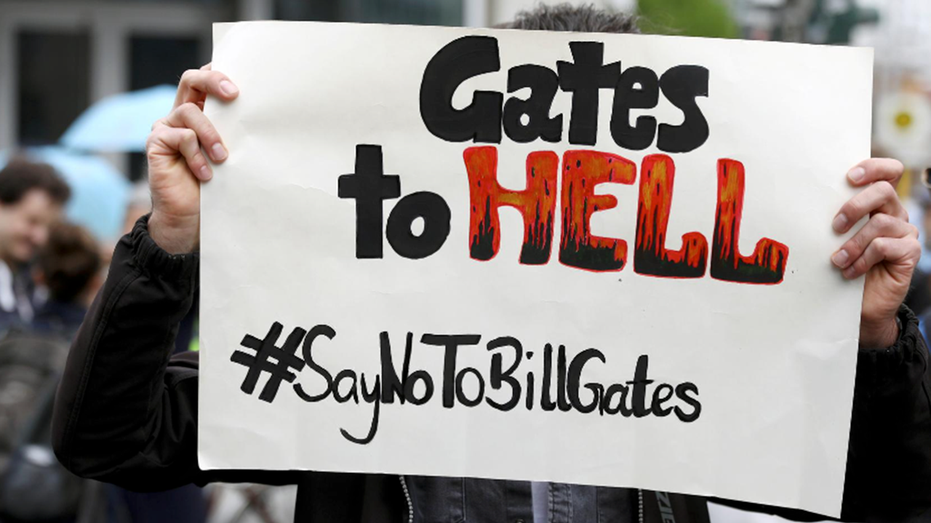'Crazy and evil': Bill Gates surprised by pandemic conspiracies
'Nobody would have predicted that I and Dr. Fauci would be so prominent in these really evil theories'
Microsoft co-founder turned philanthropist Bill Gates says he has been taken aback by the volume of “crazy” and “evil” conspiracy theories about him spreading on social media during the COVID-19 pandemic, but said on Wednesday he would like to explore what is behind them.
In an interview with Reuters, Gates said the millions of online posts and “crazy conspiracy theories” about him and about top U.S. infectious disease expert Anthony Fauci had likely taken hold in part because of the combination of a frightening viral pandemic and the rise of social media.
CLICK HERE TO READ MORE ON FOX BUSINESS
“Nobody would have predicted that I and Dr. Fauci would be so prominent in these really evil theories,” Gates said.
“I’m very surprised by that. I hope it goes away.”

A protester holds up a placard with a message against Bill Gates in Berlin, Germany on April 25, 2020. (Reuters/Christian Mang)
Gates, a billionaire who stepped down as chairman of Microsoft Corp in 2014, has through his philanthropic Bill and Melinda Gates Foundation committed at least $1.75 billion to the global response to the COVID-19 pandemic. That includes support for some makers of vaccines, diagnostics and potential treatments.
BILLIONAIRE BILL GATES SAYS LOCKDOWNS OF BARS, RESTAURANTS ARE 'APPROPRIATE' AS COVID-19 CASES SURGE
Since the pandemic began a year ago, millions of conspiracies have spread over the Internet, fuelling misinformation about the coronavirus, its origins and the motives of those working to fight it.
They include claims that Fauci and Gates created the pandemic to try and control people, that they want to profit from the virus’ spread, and that they want to use vaccines to insert trackable microchips into people.
GET FOX BUSINESS ON THE GO BY CLICKING HERE
“But do people really believe that stuff?,” Gates asked.
“We’re really going to have to get educated about this over the next year and understand .. how does it change peoples’ behaviour and how should we have minimized this?”




















